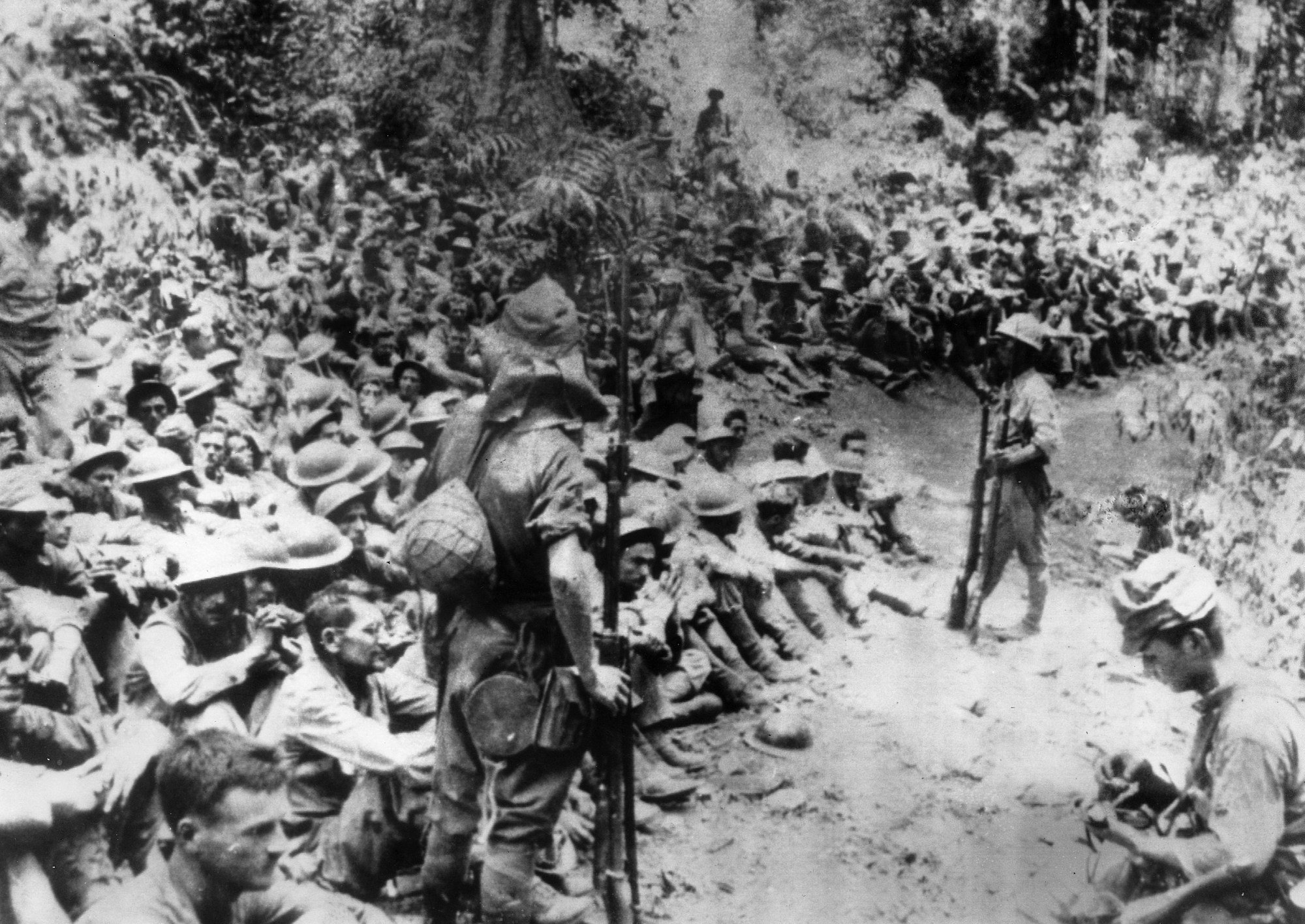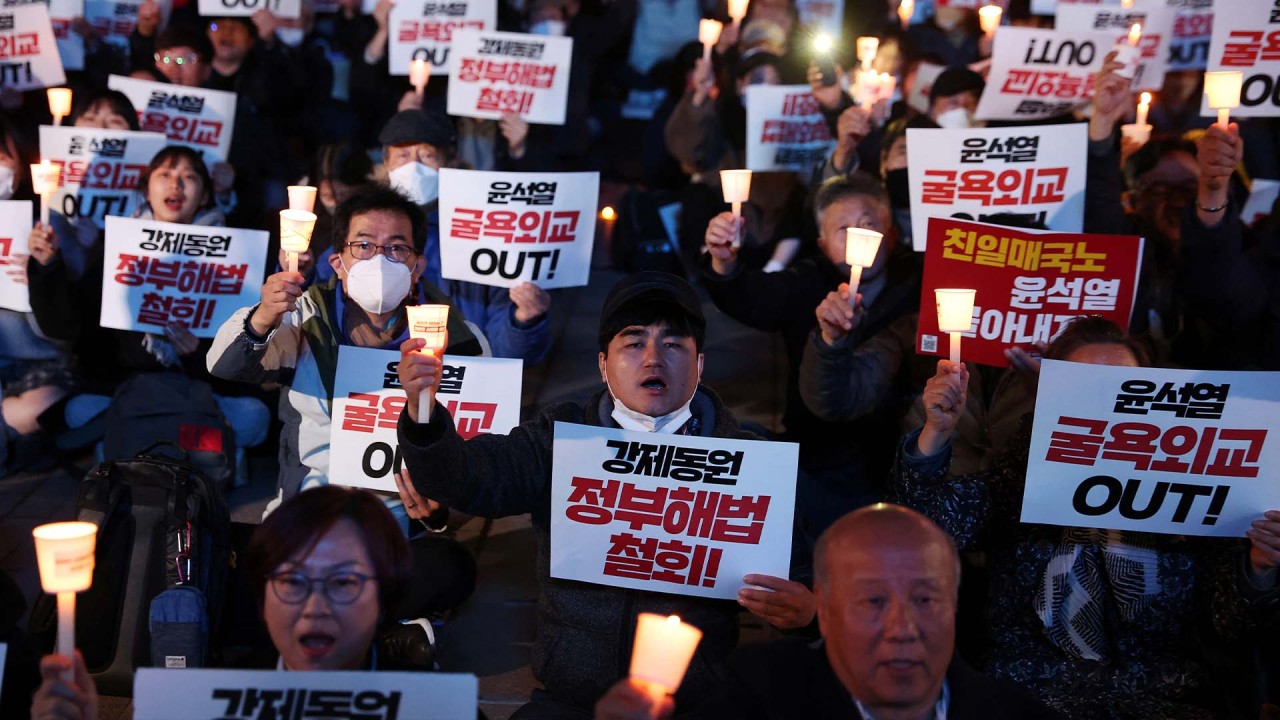Those complaints, however, were focused narrowly on concern over the “dire implications for the industrial base of the United States”, according to a letter signed by three Republican senators addressed to Janet Yellen, US Treasury secretary and chair of the Committee on Foreign Investment in the United States. The deal is expected to close in the second quarter of 2024, subject to regulatory approvals.
Relatives of men who endured years of abuse and appalling conditions as they laboured in mines, shipyards and other industrial plants that supported Japan’s war effort say they are still waiting for a meaningful apology from industrial giants like Nippon Steel, which merged with Sumitomo Metal Industries in 2012 to form one of the largest steel conglomerates in the world.
Historians estimate that Nippon Steel and its ancillary companies used at least 4,000 American and Allied POWs at its industrial sites.
Nippon Steel is also embroiled in a bitter legal fight in South Korea, where courts have repeatedly ruled that it must pay compensation to the descendants of former forced labourers.

“I am disappointed to learn of Nippon Steel’s attempted acquisition of US Steel and I remain irate that Nippon Steel still has not apologised for or even acknowledged the use of POW labourers during World War II,” said Patrick Regan, 51, from Bolingbrook in Illinois.
“A company that cannot at least admit past misdeeds cannot be believed or trusted to do the right thing going forward,” said Regan, whose grandfather, US Army Air Corp Technical Sergeant Donald C Regan, was captured during the fall of Bataan in the Philippines in April 1942. “Its monetary value may be immense, but its ethical value is zero.”
Regan was held in the Philippines for 18 months after his surrender and “exploited as a slave labourer by Nippon Steel” at the 12-B Osaka camp, also known as Hirohata, for the last two years of the war, his grandson told This Week in Asia.
“He suffered from malaria, optic atrophy, severe malnutrition and other ailments during his time as a POW … As a labourer at Nippon Steel, his fingers were crushed while moving a heavy piece of equipment,” he said.
“The physical scars from that injury were still visible when I saw them as a young boy, and the emotional scars of his treatment as a POW remained until his death in 1984.”
Patrick Regan travelled to Japan with his father in 2023, visiting the site of his grandfather’s POW camp and the steel mill where he was put to work.
“The camp is now a quiet suburban neighbourhood,” he said. “There’s no mention of the POW camp that once stood there. The security gate outside the Nippon Steel complex … makes no hint of that history.”
Teresa Goodell, 64, from Beaverton in Oregon, echoes that anger over the mistreatment of her father, Commander Zemo C Tarnowski, in Japanese captivity and forced to labour as a stevedore at docks in Japan.
“The cruelty he suffered while imprisoned morphed into suffering for his family, despite his good intentions to the contrary,” she said. “This is what trauma does; it lives on.”
Expressing her “strong opposition to the US Steel purchase”, Goodell added that “Americans who were directly and indirectly harmed by Japanese cruelty deserve a greatly overdue formal apology from Nippon Steel prior to approval of the acquisition”.
UK man’s diary unveils horrors of Japan internment camp
UK man’s diary unveils horrors of Japan internment camp
Jan Thompson, president of the American Defenders of Bataan and Corregidor Memorial Society, said: “I am shocked this is happening. US Steel symbolised America’s strength during World War II … The unions at US Steel also symbolise America’s ideals – fair wages, fair treatment and looking out for the welfare of workers.
“However, the POWs who were slave labourers for Nippon Steel or Sumitomo … were inhumanely treated as slave labourers and if they did not slave, they were not fed,” she said. “Work conditions were unsafe and beatings happened every day.”
After his repatriation, Thompson would never allow any Japanese product into the family’s home.
“I do not think ordinary Americans know anything about the history of our POWs in Japan,” Jan Thompson said. “If they did know, I believe there would be blowback. I believe our veterans’ organisations would be outraged. I wonder why our government would allow this to happen.”
Mindy Kotler, director of Washington-based Asia Policy Point and a historian of Imperial Japan’s Allied prisoners of war, said no Japanese steel company had acknowledged POW slave labour or offered an apology.
“Many ordinary Americans do not even know that Japan was an enemy in World War II,” Kotler said. “And there is some surprise the Japanese companies have never done what German companies have, which is to apologise, pay compensation and teach the history of slave labour.”
In 1999, European steel giants Thyssen AG and Krupp agreed to a merger, subject to a condition requiring the creation of a foundation to make “humanitarian payments” to former forced labourers and other victims of the Nazi regime.
While ThyssenKrupp has contributed generously to the foundation, Tokyo has resisted efforts to encourage Japanese companies to take a similar path and insists that all claims were settled under the terms of the San Francisco Peace Treaty.
“Here is an opportunity for Nippon Steel to do the right thing, to live up to its current corporate principles and Japan’s new efforts to ask its companies to engage in responsible business conduct by respecting human rights,” Kotler said.
“Maybe the company will finally acknowledge its use of American and Allied POW slave labour.”
"corp" - Google News
January 16, 2024 at 07:00AM
https://ift.tt/lsk0wEK
War wounds reopen over POW abuse as Nippon Steel buys US rival - South China Morning Post
"corp" - Google News
https://ift.tt/jUTgupR
Shoes Man Tutorial
Pos News Update
Meme Update
Korean Entertainment News
Japan News Update
Bagikan Berita Ini















0 Response to "War wounds reopen over POW abuse as Nippon Steel buys US rival - South China Morning Post"
Post a Comment